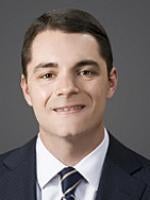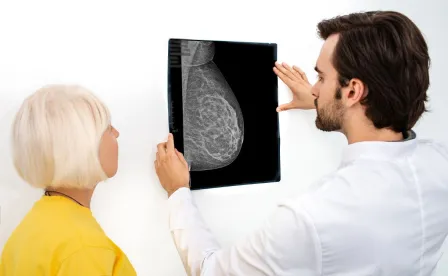On June 29, 2023, Governor Ned Lamont signed Public Act No. 23-97, amending Connecticut’s noncompete law for physicians and implementing restrictions on noncompete agreements entered into with physician assistants (PAs) and advanced practice registered nurses (APRNs). The act has an effective date of July 1, 2023, but most of the material changes do not become effective until October 1, 2023.
Quick Hits
-
Public Act No. 23-97 amends Connecticut’s noncompete law for physicians, and expands the law to restrict noncompete agreements entered into with physician assistants (PAs) and advanced practice registered nurses (APRNs).
-
The law takes effect on July 1, 2023, and new noncompete agreement limitations on physicians, PAs, and APRNs take effect on October 1, 2023.
Background on Physician Noncompete Limitations in Connecticut
Connecticut passed legislation in 2016 limiting the use of noncompete agreements for physicians in several material ways. Among other limits, the law precludes Connecticut employers from entering into agreements that restrict physicians from competing for a period of more than one year. Connecticut law also prohibits agreements restricting physician competition outside of a fifteen-mile radius of the “primary site where such physician practices,” which the law previously defined as “the office, facility or location where a majority of the revenue derived from such physician’s services is generated” or “any other office, facility or location where such physician practices and [is] mutually agreed to by the parties and identified” in the agreement. In addition, a physician noncompete agreement is enforceable only in the event that the physician resigns or is discharged for cause. In other words, if an employer terminates a physician’s employment without cause, that physician can argue that the noncompete provision is unenforceable.
By virtue of the legislation, physician noncompete agreements are also subject to the analysis used by Connecticut courts to assess the enforceability of restrictive covenants impacting most other industries. Under that analysis, an agreement is only enforceable if it is: (1) “[n]ecessary to protect a legitimate business interest”; (2) “reasonably limited in time, geographic scope and practice restrictions as necessary to protect such business interest”; and (3) “otherwise consistent with the law and public policy.”
Physician Noncompetes as of October 1, 2023
Public Act No. 23-97 places additional limitations on physician noncompete agreements. For example, any contract or agreement entered into, amended, extended, or renewed on or after October 1, 2023, will not be enforceable in the event:
-
“the physician … does not agree to a proposed material change to the compensation terms” in the contract or agreement “prior to or at the time of the extension or renewal of the contract or agreement”; and
-
“the contract or agreement expires and is not renewed by the employer or the employment or contractual relationship is terminated by the employer, unless such employment or contractual relationship is terminated by the employer for cause.”
These new statutory requirements do not apply to group practices of thirty-five or fewer physicians, provided that the majority of ownership of such a group practice is comprised of physicians. The act also requires the parties to identify the physician’s primary practice site in the noncompete agreement and limits the definition of “primary site” to “any single office, facility or location where [the] physician practices.”
PA and APRN Noncompetes as of October 1, 2023
Prior to Public Act No. 23-97, the statutory limitations described above only applied to physician noncompete agreements. The act changes that and implements similar limitations on noncompete agreements entered into with PAs and APRNs.
Effective October 1, 2023, PAs and APRNs may not be subject to noncompete agreements with a duration of more than one year. And, like physicians, restrictions on competition must be limited to a fifteen-mile radius from the PA’s or APRN’s primary site of practice, as identified in the agreement. PA and APRN agreements are also subject to a statutory reasonableness analysis applying the factors identified above, including that they must be tailored to protect legitimate business interests, reasonable in time and geographic scope, and consistent with public policy.
Key Takeaways
Healthcare employers may want to review their contracts and agreements with physicians, PAs, and APRNs to ensure that they are updated to comply with the new requirements imposed by Public Act No. 23-97. This includes defining the primary site of practice in any agreement containing a restriction on unfair competition.




 />i
/>i

